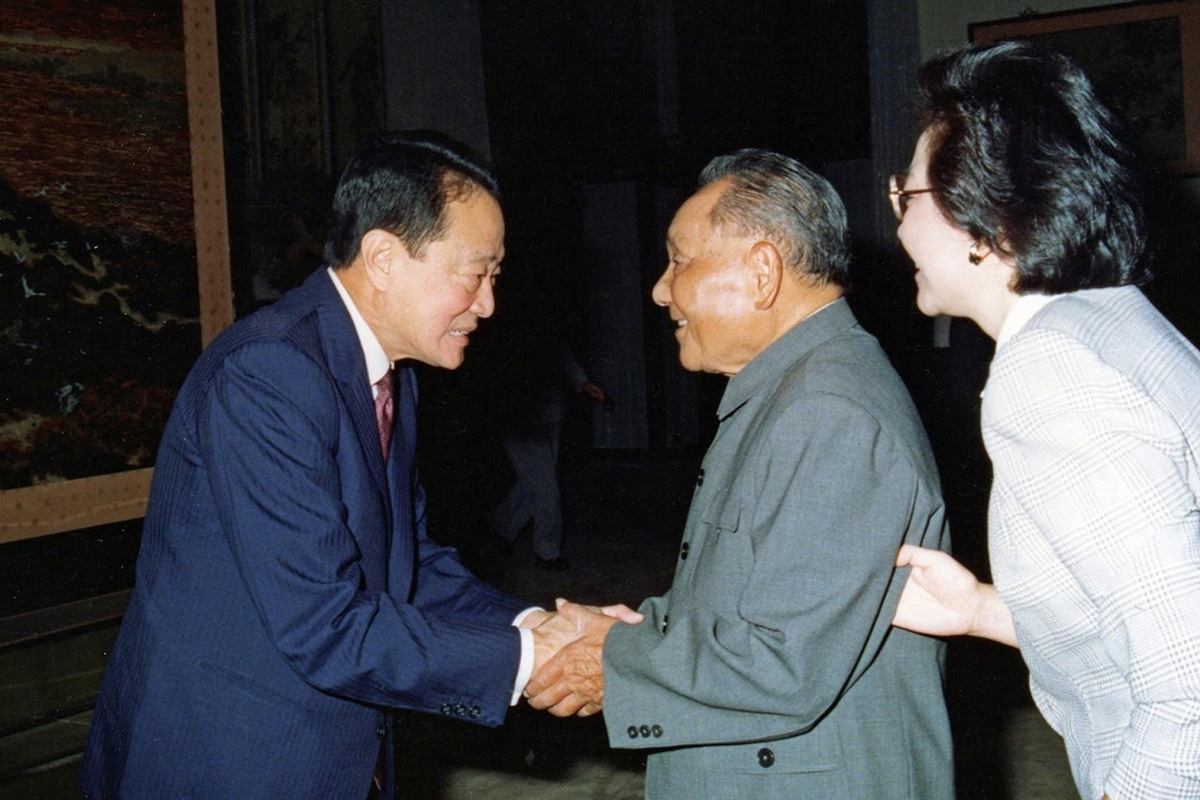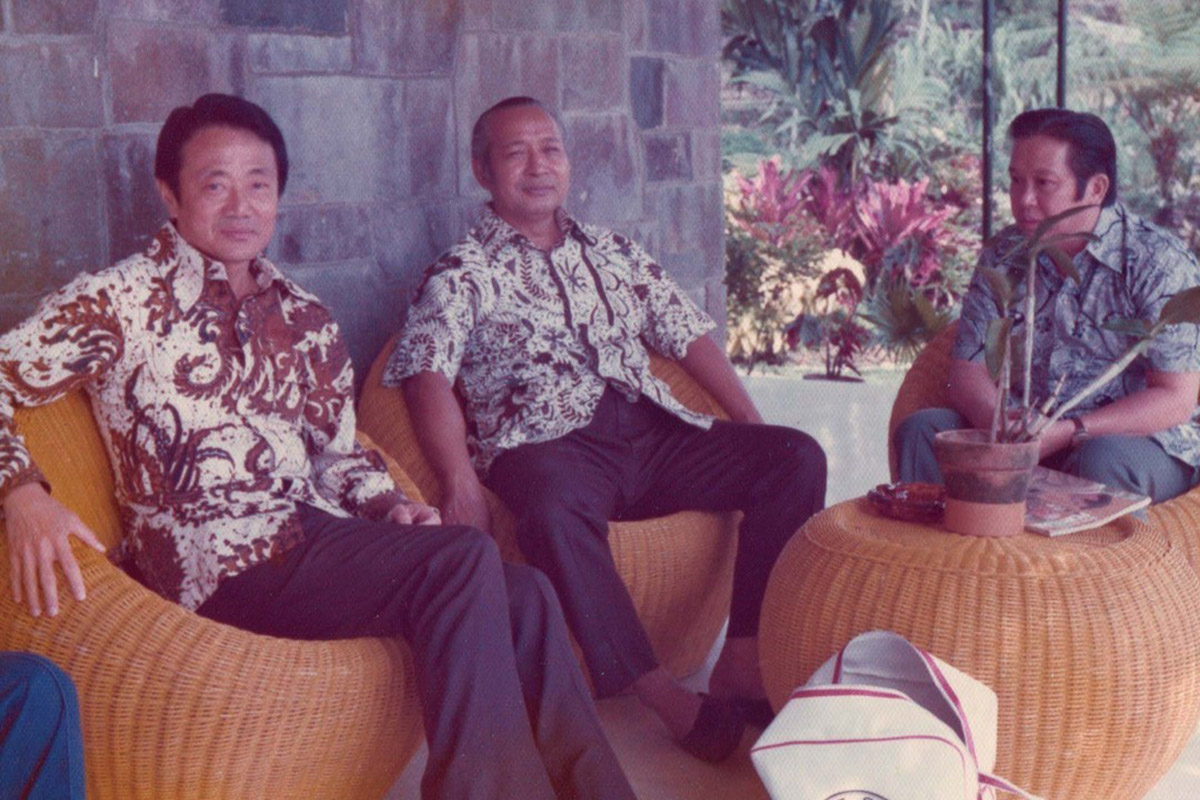The past few days have seen the Malaysian media frenzied by allegations that tycoon and business magnate, Robert Kuok has been funding various opposition parties in an attempt to overthrow the Malaysian government. These allegations were first published by exiled blogger and fugitive, Raja Petra Kamarudin on his website, Malaysia Today – allegations that Kuok had since refuted via a media statement.
However, the postings triggered a flurry of responses – some of which were very uncouth and shockingly were uttered by a Malaysian Cabinet Minister. The crude, derogatory and borderline racist comments that were unleashed will not bode well with the urban and intellectual vote bank of all races who see Robert Kuok as an inspiration and role model.
‘Sugar King of Asia’
Robert Kuok is a name synonymous with sugar and wealth. Born in the Malaysian state of Johor in 1923, he was the youngest of three brothers and from an early age, had a keen eye for business.
He started off as a clerk at the rice trading division at a Japanese conglomerate in Singapore during the latter’s occupation of Malaya. When the war ended, he returned home and honed his business skills learnt from the Japanese in his family business in Johor Bahru.
After his father’s demise, Kuok and some family members founded Kuok Brothers in 1949. What began as an agricultural commodity trading company has now grown to become a billion-dollar business empire spanning five continents. As of publication time, Kuok’s personal net worth, according to Forbes, stands at US$15.5 billion – making him the richest man in Malaysia, Southeast Asia’s second richest man and 94th richest man in the world.
Kuok’s is most famously known for his sugar business. He formed Malayan Sugar Manufacturing in 1959 together with two Japanese partners. At his peak, he controlled 80 percent of the Malaysian sugar market, then producing 1.5 million tonnes or the equivalent of 10 percent of global sugar production. After owning the sugar refining business for over 45 years, Kuok exited the Malaysian market in 2009 after divesting his company’s stake to Felda Global Ventures (FGV).
However, trading sugar wasn’t his only forte. Consolidated under PPB Group Berhad, a now diversified conglomerate that he founded in 1968, he built businesses in different sectors including agribusiness, food production, film distribution and property investment. Some of his notable businesses, play a role in every Malaysian’s daily life in one way or another, from cinema chain – Golden Screen Cinemas (GSC), to agribusiness group – Wilmar International and flour mill and production company – Federal Flour Mill (FFM).
Kuok’s business drive was partly due to his patriotism for Malaysia. In his memoirs, he recollects how patriotism was the force behind launching Malaysia’s international shipping line, Malaysian International Shipping Corporation (MISC). Initially, MISC had a paid-up capital of RM10 million, with the Kuok Brothers holding a leading 20 percent stake. Soon after, Kuok received numerous requests from then Prime Minister, Abdul Razak Hussein, due to pressure from certain quarters, requesting for more shares to be issued to Malaysia’s bumiputra elite, which eventually resulted in the dilution of the Kuok Brothers’ stake in the company. In the end, Kuok made the bold move of selling off his 15 percent stake just before MISC went public in 1987. This paved the way for the establishment of Pacific Carriers Limited in Singapore to carry mainly his own shipping cargo.
In 1969, Kuok took up the challenging role of Chairman of Malaysia Singapore Airlines (MSA) for two years. During this tenure of national service, Kuok played peacemaker between the appointed directors from the Government of Malaysia and Government of Singapore, leading up to MSA’s split into Malaysian Airline System (MAS) and Singapore Airlines (SIA) in 1972, once more contributing to the call to serve the country.

Robert Kuok (L) with Deng Xiaoping (C) and his daughter Deng Rong (R) in Beijing in 1990. (Photo: Robert Kuok, A Memoir)
The Kuok philosophy
Kuok’s business acumen wasn’t entirely derived from making a profit. His successes were also down to the simple lessons of life he learnt when he was younger. The business magnate holds to the maxim that “failure is the mother of success.” However, he opines that the reverse better reflects the nature of society today. He believes that success, often breeds failure because it makes one arrogant and incautious.
He has a strong belief in the principles of Confucianism which helped guide his business philosophy throughout his life. Kuok believes in the importance of understanding human nature and that everyone should have an equal chance to succeed. He was never hesitant to help others succeed as well. His people-centred nature is demonstrated in the way he treats his employees and how he places emphasis on their personal career development and character over just academic prowess.
Kuok also pointed to the advice given to him by his mother which helped shape the man he eventually became. According to Kuok, his mother was fond of reminding him to conduct his business morally and not to fall victim to the lures of materialism. He is an avid believer in nurturing long-term relationships rather than looking for immediate profits.
His ability to understand different value systems, enabled him to grasp the communist ideology and beliefs. This helped him develop a firm understanding of how Chinese businessmen from mainland China operated, which enabled him to have excellent relations with them so much so, being the Malaysian government’s calling card when assistance was needed. This evidently enabled him to be one of the pioneering entrepreneurs to expand his business to China in the years following Mao Zedong’s Cultural Revolution.
What will come of this anti-Kuok tirade?
The whiplashing that the nonagenarian billionaire has received in the last 36 hours will have implications for the coming Malaysian General Elections. The funding mechanics within the Chinese community may now shift towards his direction as concerted efforts are made to act as a vanguard to the billionaire tycoon. Whilst the Malaysian Prime Minister’s Office has now proceeded to issue a statement recognising Robert Kuok’s accomplishment and contributions to the development of Malaya (and now Malaysia), many Malaysians will remember this outburst, perceived to have been made to fan Malay sentiment and split race-vote dynamics.
Many young Malaysians are also unaware of the role Kuok played in normalising relations with China and the May 13 incident. They also are unaware of the role Kuok played in the 1960s and 1970s, the halcyon years for Southeast Asian sugar producers, who arbitraged on rising prices and market volatility, to ensure sugar was affordable to Malayan folk. The sentiment from this event is that Malaysians in general are longing and yearning for a multi-racial and plural society built on the very same values that Robert Kuok holds dearly and not the race, religion and uncouth behaviour being pedalled by certain people in office.
In his memoirs, Kuok stated “I was often asked to give substantial donations to the ruling parties, UMNO and MCA, after independence in 1957. I gave willingly, happily and freely.”
Thus, this attempt to compromise his integrity and dignity has severely back fired on its instigators and will have a ripple effect in time to come.
If at all, this incident may serve to prove to younger Malaysians who might not be aware or fully appreciate his contributions to the nation, that Robert Kuok is indeed the last Malayan gentleman.
